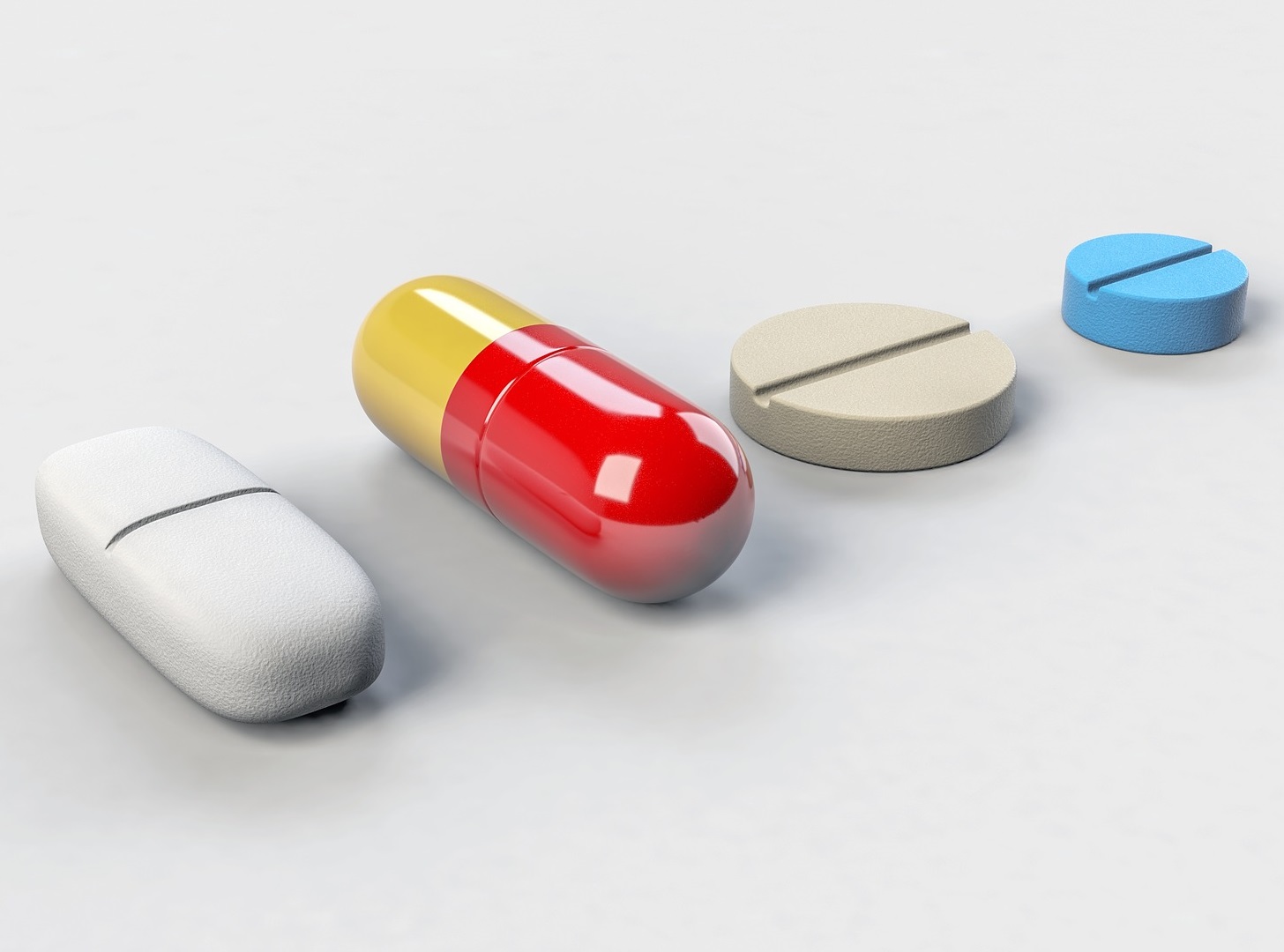As social media has pervaded nearly every facet of modern life, its presence — and the emphasis it puts on giving off a particular vibe — has placed ever-increasing pressure on its users to appear a certain way. Recent movements, like body positivity, have found success through online platforms, prompting demands for greater diversity and honesty in industries like modeling, but there is still one topic that no one seems to be discussing: mental health. According to Instagram, antidepressants might as well be a myth.
Our current social environment places the concept of happiness on an impossibly high pedestal and values it as a necessity. We’re averse to ever feeling bad because we’ve come to view sadness and stress as evils, but while these emotions are painful and can certainly be harmful, life is about the lows as well as the highs, and this balance is essential to keeping us stable and strong. The pressure to not show weakness or distress unbalances the scale, leaving you more vulnerable to fall in secret despair.
People suffering from mental distress often leave their pain unvoiced, which leads to a massive deficit in public awareness about mental illness and its treatment. According to the Anxiety and Depression Association of America (ADAA), anxiety disorders affect 18% of the population, or around 40 million adults, but only 37% of those 40 million receive treatment. Similarly, 16 million Americans suffer from depression, but only 62% of them receive treatment.
With physical diseases, patients are typically eager to undergo treatment to fix whatever’s ailing them, whether it’s something as complex diabetes or just a simple infection. It would be illogical for someone to not seek treatment and simply hope that, by sheer force of will, it’ll go away.
https://www.instagram.com/p/BzyECUtgB4R/
But when it comes to mental disorders, this is the most common mindset; the prevailing notion seems to be that you need to get over it yourself and just choose to be happy, like nothing’s wrong. That’s about as effective as telling a blind person to just choose to see.
When everybody says you should be able to get better on your own, it’s hard to admit that you can’t. Perhaps the saddest thing about our current mental health crisis is that, despite how pervasive depression and anxiety are in our country, modern medicine has already found highly effective treatment methods.
Granted, there’s still a lot we don’t know about these disorders, so we can’t find a definitive way to “cure” them, but we do know how to manage the symptoms and grant relief in most cases. The problem is, many people who suffer from mental illness avoid treatment like the plague.
Just the word “antidepressants” sends a shiver down lots of people’s spines. In famous, violent crime cases, it’s always sensationalized when the suspect is revealed to take psychiatric medication; a troubled character is always presented as a dramatic plot twist, or else it’s a signal that their life is falling apart.
Whatever the underlying connotations may be, antidepressants have a bad rap in the public’s imagination. They’re also inaccurately portrayed by media as “happy pills” or quasi-tranquilizers and can often be misinterpreted as the easy way out for people suffering from depression and/or anxiety.
Here’s the truth about antidepressants: Just like any other medication, they work better for some people than others, and they can have side effects. There are a few types of antidepressants that function in slightly different ways, but they all have virtually the same level of effectiveness.
Their goal isn’t to make you happy; they simply alleviate your depression and/or anxiety, which allows patients to take measures to improve their lives and find happiness, like forming healthy relationships and indulging in enjoyable hobbies and leisure activities.
https://www.instagram.com/p/By5bPEigpat/
The current prevailing medical theory is that decreased amounts of certain chemicals in the brain cause depression and some forms of anxiety. These chemicals most commonly include serotonin and noradrenaline (adrenaline, in layman’s terms) and function as neurotransmitters, which allow your nerves to communicate and transmit signals to one another. Antidepressants function by increasing the availability of these neurotransmitters, which, theoretically, stabilizes the patient and makes the depressed mood fade away over time.
With the right prescription, antidepressants can work wonders for people with moderate to severe depression or anxiety, and help them get a handle on their overwhelming feelings of sorrow, guilt and worry after just a few weeks of adjustment. But that doesn’t mean medication is a cure-all; for many patients, their first prescription can be ineffective, or it brings unpleasant side effects, like nausea or decreased libido.
Unfortunately, that’s due to an innate flaw in our understanding of these disorders. Because they affect every patient in a subtly different way, they often require highly individualized treatments that take months or even years to curate. Don’t let that scare you off antidepressants though. With time and effort, you can find the right methods to alleviate your symptoms.
For those who truly don’t want to take medication, there are other treatment options available. The negative preconceptions around antidepressants means that many patients actually prefer psychosocial treatment, or therapy, which has been proven, in some cases, to be even more effective at treating depression and anxiety. Cognitive behavioral therapy, which involves guided self-reflection to identify the behaviors and thoughts that are causing the patient distress, is the most common form.
It’s easy to see why people generally prefer therapy: apart from reliving painful memories, there aren’t any side effects, and it typically takes less time to find a good therapist than a prescription that works. Best of all, it saves patients who already struggle with guilt and shame from feeling like they’re dependent on medicine.
By placing patients in charge of how effective their treatment will be, based on their own participation, therapists can alleviate the feelings of helplessness and hopelessness that so often keep a depressed person down.
https://www.instagram.com/p/BynwszkgufP/
However, therapy can’t help someone who doesn’t have the energy for the immense effort that recovery requires because depression and anxiety can sap all your strength and motivation to help yourself out of the pit. And if you aren’t ready or able to dedicate a large chunk of time toward analyzing all your faults, even the mention of therapy can be enough to scare some people away.
That’s why it’s so important to normalize taking antidepressants. Therapy isn’t always a viable option, and because these disorders affect everyone differently, they can require vastly different treatments for different people.
Taking antidepressants for mental illnesses should be as intuitive as taking insulin for diabetes, because depressed and anxious people aren’t just sad and worried; they have a diagnosable disorder that alters their mental functioning, and they shouldn’t have to just learn to live with it when effective treatments exist.
Typically, the recommended treatments for either type of disorder is a combination of both medication and therapy. For it to work, the patient must trust in the treatment and want to fully participate, and for that to happen, they need sufficient and accurate information that helps them determine if the possible benefits outweigh the potential side effects.
Until our society stops shaming chronically-depressed people for being “broken,” and starts to treat mental afflictions with the same objectivity as physical ones, that scary number of untreated sufferers will continue to loom over our country.
Of course, no treatment is perfect, but there are options that can vastly improve the quality of life for people who have lost any kind of hope for relief. Our country needs to accept that depression and anxiety disorders are surprisingly common, and erase the stigma of receiving psychiatric treatment. The only way to encourage more people to seek treatment is to discourage the harmful taboo that has been associated with it.
















